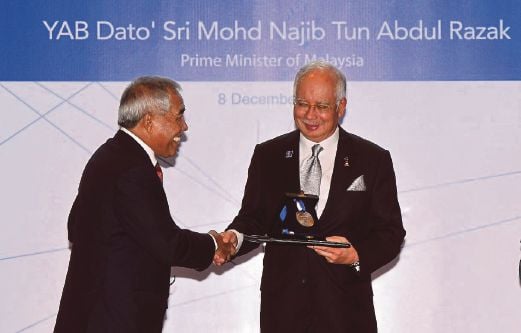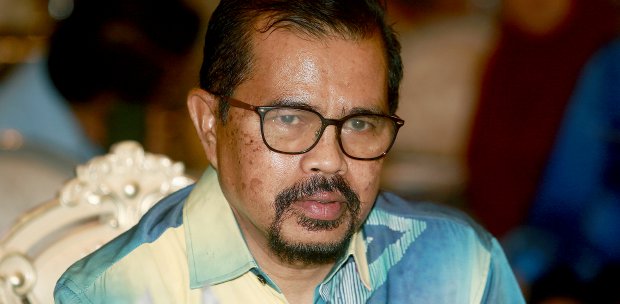MALAYSIA is lucky to have Datuk Seri Najib Razak as prime minister. He is no ordinary leader. We have seen evidence of this ever since he took office.
He came at a time when the nation had to make tough decisions on a number of issues. Top of the list is how to escape the middle-income trap.
As the country’s chief executive officer, the prime minister is in the best position to introduce change.
He used transformation as a weapon of change. Government transformation. Economic transformation. Political transformation. And now, scientific transformation.
There has been overwhelming support for his transformation agenda. Despite uneasiness among a minority, he has been relentless in pursuing and championing change. One sign of true leadership.
The science fraternity welcomes Najib’s many initiatives to bring about change in science.
For some years now, science has had difficulty attracting public discourse. Policymakers have not devoted much attention to deliberate on scientific issues. Not until lately.
At Parliament, very few questions related to science have raised eyebrows.
The only exception was when Lynas and its rare earth controversy were hotly debated. Student interest in science has also seen much decline.
The industry is also concerned about the declining number of human talent in science.
Many paint a bleak future for science.
This is especially true for those whose businesses thrive on technology. One example is the growing demand for talent in integrated circuit (IC) design.
At a recent roundtable arranged by the academy’s Top Research Scientists Malaysia group, the head of an IC design company based in Penang echoed such concerns.
The roundtable discussed whether science in the country had truly delivered value to the nation.
The data shared was not conclusive. One panel member produced fairly credible evidence that scientists, as a whole, had not delivered value for money.
There are exceptions, of course. But the assessment by another panellist said otherwise.
Both produced equally justifiable evidence. This is where an independent assessment by a neutral body like the academy can help resolve the disagreement.
The prime minister, on the other hand, has taken such feedback seriously.
This explains why many initiatives to invigorate science and innovation have been put into action.
The re-establishment of the office of science adviser was an important rejuvenation for science in the country. Then, Najib created a special agency to focus on driving innovation. This was the Malaysia Innovation Agency (AIM), which was placed under the Prime Minister’s Department.
This was an important step for the nation’s innovation agenda, since innovation cuts across many ministries.
The Malaysian Industry-Government Group in High Technology (Might), another institution that caters to many industrial sectors, was also moved under the Prime Minister’s Department.
Later, the Global Science and Innovation Advisory Council (GSIAC) was formalised. This was done to bring in an international dimension to the nation’s strategic deliberation on science.
Ever since then, initiatives to improve the teaching of Science, Technology, Engineering and Mathematics (STEM) subjects have gained strong support from the prime minister.
This was closely followed by the Science to Action (S2A) programme, anchored by Might. With the right action plans, S2A would prove to be a key instrument in transforming science in the country.
Recently, Najib announced a slew of initiatives, including the Public-Private Research Network, anchored by the Education Ministry; Steinbeisch Foundation for technology brokering under AIM; and, the rebranding of Sirim in partnership with Fraunhofer Germany to start a national network of industrial research centres for the country.
Najib has also strongly endorsed the academy’s initiative under the MegaScience framework of studies, which undertakes a risk opportunity assessment of Malaysia come
2050.
I am sure that there are many other science-related initiatives that escaped my attention.
But one message is clear. The prime minister has demonstrated a strong determination to revive waning interest in science.
As the country pursues innovation and sustainability, science is a critical enabler.
The country is fortunate that the prime minister himself has shown strong leadership in championing the science agenda.
Congratulations to the prime minister for the Fellowship Award. There is now hope for science.






